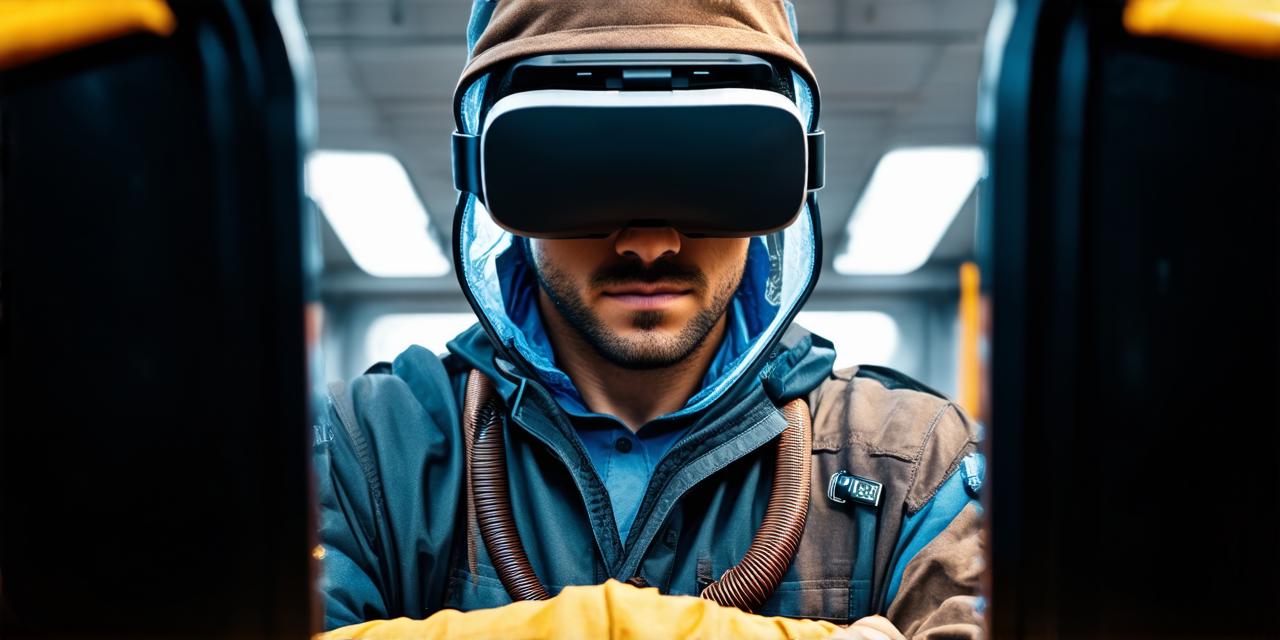Virtual Reality (VR) is a revolutionary technology that is rapidly gaining popularity across various industries. It has the potential to transform the way we interact with the world around us and has already found applications in fields such as gaming, education, healthcare, and more.
However, despite its many benefits, VR is not without its drawbacks. In this article, we will explore some of the key drawbacks of using virtual reality and how they can impact VR developers.
One of the biggest drawbacks of VR is its high cost. While VR technology has come a long way in recent years, it remains an expensive investment for many organizations. This is particularly true for small businesses or startups that may not have the financial resources to invest in VR technology.
Another drawback of VR is its limited accessibility. While VR has the potential to reach a wide audience, it remains an exclusive experience that not everyone can enjoy. For example, individuals with certain medical conditions or disabilities may find VR uncomfortable or even dangerous.
Additionally, not all individuals have access to the latest VR technology, which can limit their ability to fully participate in VR experiences.
Privacy and security are also major concerns when it comes to VR. With VR headsets capturing a user’s every movement, there is a risk that sensitive information could be compromised. Additionally, VR experiences may be used to collect data about users without their knowledge or consent.
This raises important ethical questions about the use of VR technology and how it should be regulated. Developers must prioritize user data protection and work to ensure that sensitive information is not compromised when using VR technology.
Finally, there are concerns about the impact of VR on mental health and well-being. While some studies have suggested that VR can have positive effects on mental health, others have raised concerns about the potential for VR to contribute to motion sickness or other negative experiences.
Additionally, some users may become addicted to VR experiences, leading to negative impacts on their social lives or even their physical health. Developers must be mindful of these potential negative effects and work to create VR experiences that are safe and enjoyable for all users.
Despite these drawbacks, many experts believe that VR has tremendous potential to transform various industries. It can be used to train doctors, simulate military operations, or even provide entertainment to millions of people around the world. However, it is important for VR developers to be aware of these potential challenges and work to address them in order to ensure the long-term success of VR technology.
One approach that some developers are taking is to focus on making VR more accessible and affordable. For example, companies like Oculus are working to develop lower-cost VR headsets that can be used by individuals with limited financial resources.
Additionally, some developers are exploring ways to make VR experiences available online or through mobile devices, which could help to reach a wider audience.
Another approach is to focus on improving the security and privacy of VR experiences. Developers should prioritize user data protection and work to ensure that sensitive information is not compromised when using VR technology. Additionally, developers should be transparent about how they are collecting and using user data, and give users control over their own information.
This will help to build trust with users and ensure that they feel safe and secure while using VR technology.
Finally, developers should be mindful of the potential impact of VR on mental health and well-being. While some studies have suggested that VR can be a positive tool for improving mental health, others have raised concerns about its potential negative effects.
Developers should work to create VR experiences that are safe and enjoyable for users, and prioritize the well-being of their customers above all else. This will help to ensure that VR technology is used in a responsible and ethical manner.
In conclusion, while virtual reality has enormous potential to transform various industries, it is not without its drawbacks. Developers must be aware of these challenges and work to address them in order to ensure the long-term success of VR technology. By focusing on accessibility, affordability, privacy, and mental health, developers can help to overcome these challenges and create VR experiences that are safe, enjoyable, and beneficial for all users. With careful planning and responsible use, VR has the potential to revolutionize the way we interact with the world around us.
